
Find Help
More Items From Ergsy search
-

Addressing the Rising Cost of Living: Community Support and Resources
Relevance: 100%
-

Addressing the Cost of Living Crisis: Community Support and Resources
Relevance: 83%
-

Impact of Cost of Living on UK Communities
Relevance: 73%
-

Mental Health Impact of Cost of Living Crisis and Support Resources
Relevance: 70%
-

Impact of Rising Living Costs on Family Health
Relevance: 68%
-
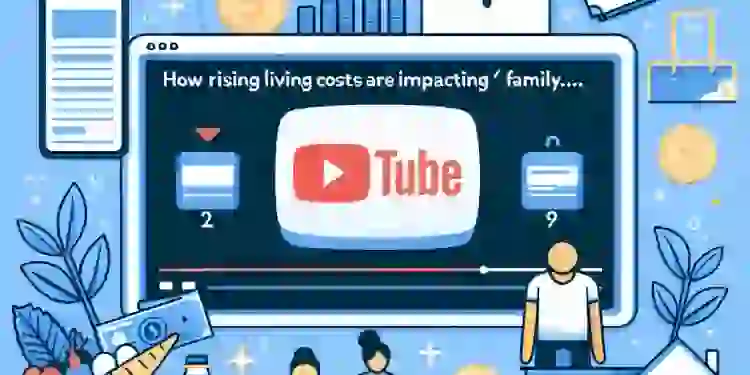
How Rising Living Costs Are Impacting Family Wellbeing
Relevance: 67%
-

Understanding the Impact of Rising Living Costs on Family Welfare
Relevance: 66%
-

Rising Cost of Living: How Families Can Cope
Relevance: 65%
-

Financial Support for Families Amid Rising Cost of Living
Relevance: 59%
-

Charities Warn of Food Insecurity Amidst Rising Cost of Living
Relevance: 58%
-

Essential Tips for Mental Health and Well-Being Amidst Rising Living Costs
Relevance: 51%
-

Navigating the UK Cost of Living Crisis: Tips for Families
Relevance: 49%
-

Impact of Rising Energy Costs on Family Budgets
Relevance: 48%
-

The Rise of Community Food Banks: Combating Hunger Locally
Relevance: 47%
-
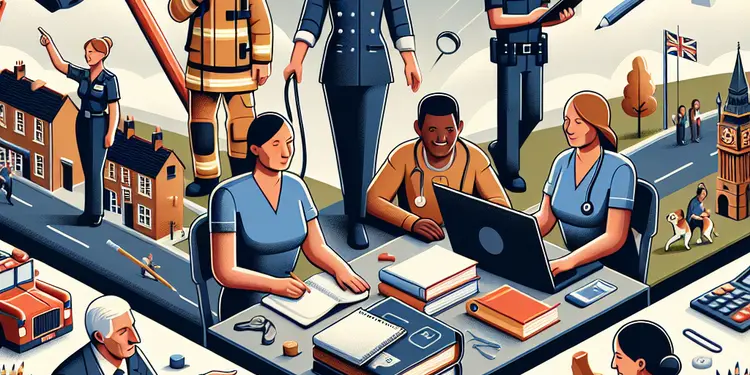
How can community helpers access educational resources?
Relevance: 46%
-

What is the £500 cost of living payment?
Relevance: 45%
-

Is the £500 cost of living payment taxable?
Relevance: 45%
-

Are there online resources available for community helpers?
Relevance: 44%
-

What is the £500 cost of living payment?
Relevance: 44%
-

Is the £500 cost of living payment a one-time payment?
Relevance: 43%
-

UK Government Announces New Energy Bill Support Amid Rising Costs
Relevance: 43%
-

Accessing Mental Health Support Resources in the UK
Relevance: 43%
-

Can community helpers access physical health resources?
Relevance: 43%
-

Is there a deadline to apply for the £500 cost of living payment?
Relevance: 42%
-
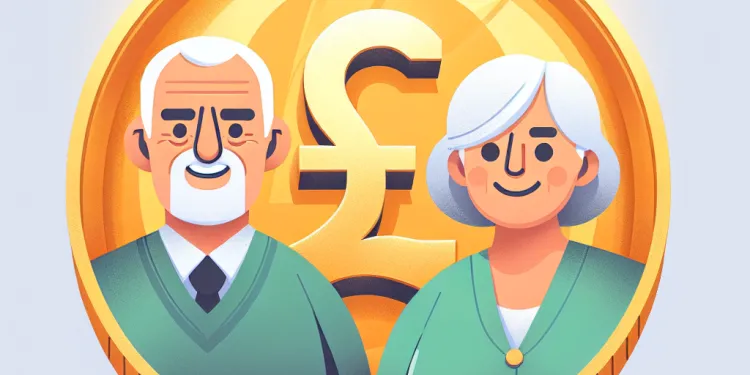
Are pensioners eligible for the £500 cost of living payment?
Relevance: 42%
-

When will I receive the £500 cost of living payment?
Relevance: 42%
-
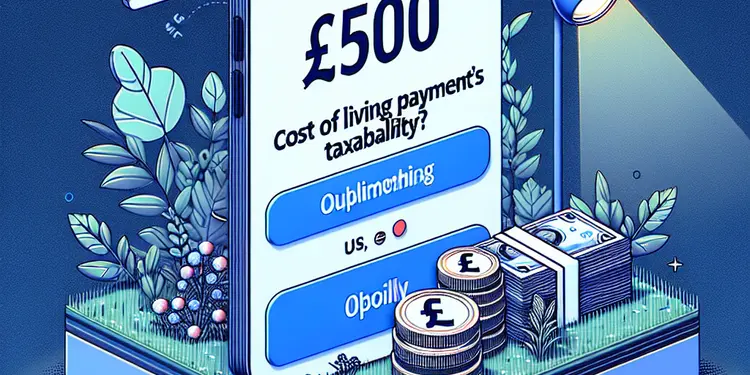
Is the £500 cost of living payment taxable?
Relevance: 42%
-

Can students receive the £500 cost of living payment?
Relevance: 42%
-

What types of support are available for community helpers?
Relevance: 41%
-

Where can I find more information about the £500 cost of living payment?
Relevance: 41%
-

Are students eligible for the £500 cost of living payment?
Relevance: 41%
-

Will the £500 cost of living payment affect my benefits?
Relevance: 41%
-

What Household & Cost‑of‑Living Support grants may be available to me?
Relevance: 41%
-

Is the £500 cost of living payment a one-time payment?
Relevance: 40%
-

What is the role of community hubs in supporting helpers?
Relevance: 39%
-

How do I apply for the £500 cost of living payment?
Relevance: 39%
-

Where can I find more information about the £500 cost of living payment?
Relevance: 39%
-

Mental Health Support Resources for Families
Relevance: 39%
-
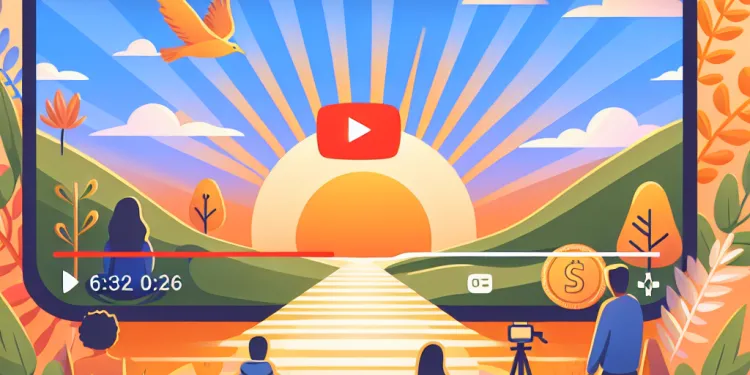
Mental Health Support Resources in the UK
Relevance: 38%
-

What are peer support groups for community helpers?
Relevance: 38%
Addressing the Rising Cost of Living: Community Support and Resources
Introduction
The rising cost of living in the United Kingdom has been a significant concern for many households. As prices increase for essential items such as food, housing, and utilities, families may find it challenging to make ends meet. Fortunately, there are various community support systems and resources available to help individuals navigate these financial pressures. Understanding and accessing these resources can provide much-needed relief and foster a sense of community solidarity.
Food Banks and Community Pantries
Food banks and community pantries play a crucial role in supporting those who struggle to afford groceries. Numerous organisations across the UK, such as The Trussell Trust, work tirelessly to provide emergency food supplies to those in need. By visiting local food banks, families can receive non-perishable items and some perishable goods, ensuring they have access to nutritious meals without the financial strain. Additionally, some community pantries offer 'pay what you can' schemes, allowing individuals to contribute within their means.
Housing Assistance Programmes
With the cost of housing soaring in many parts of the UK, there are several programmes designed to offer support. Local authorities often provide housing assistance through schemes like housing benefit and council tax reduction. Charities such as Shelter offer advice and support for those facing homelessness or housing difficulties. These resources can help individuals secure affordable accommodation or negotiate rent with landlords, providing stability in an uncertain economic climate.
Utilities and Energy Support
Energy bills have seen significant increases, posing another financial burden on households. To combat this, the UK government and various organizations offer support through schemes like the Warm Home Discount, which provides a rebate on electricity bills for eligible low-income households. Additionally, programs like the Energy Company Obligation (ECO) help improve home energy efficiency through insulation and heating upgrades, reducing long-term energy costs.
Financial Education and Debt Management
Many communities provide financial education programs to help individuals manage their finances more effectively. Organisations like Citizens Advice offer free and confidential advice on budgeting, saving, and dealing with debt. Debt charities such as StepChange offer tailored debt management plans and support services for those overwhelmed by financial obligations. These resources empower individuals to take control of their financial situations and make informed decisions.
Conclusion
The rising cost of living in the UK presents substantial challenges, but community support systems and various resources are available to provide relief. By taking advantage of food banks, housing assistance programs, utilities and energy support schemes, and financial education services, individuals can mitigate the impact of increased living costs. These resources not only offer practical help but also promote a sense of community resilience and solidarity during difficult times.
Addressing the Rising Cost of Living: Community Support and Resources
Introduction
In the UK, the cost of living is going up. This means things like food, houses, and bills cost more money. Many families worry about this. But, there are places and people who can help. By using these helps, families can feel better and part of a caring community.
Food Banks and Community Pantries
Food banks and community pantries help people who find shopping for food hard. Groups like The Trussell Trust give emergency food to those who need it. Families can get dry foods and some fresh foods. Some places let you pay what you can, so everyone can join in.
Housing Assistance Programmes
Renting a house costs a lot of money, too. But there are help programs for this. Local councils can help with plans like housing benefits. Groups like Shelter can help if you have problems with your house or need advice. These help you find affordable homes.
Utilities and Energy Support
Bill costs are going up. The government and other groups help people with their energy bills. For example, the Warm Home Discount gives some money back on electricity bills for people who earn less money. The Energy Company Obligation (ECO) program helps make homes warmer and use less energy, saving money in the long run.
Financial Education and Debt Management
Many places help teach people how to look after their money. Places like Citizens Advice give free help on how to save money and pay bills. Charities like StepChange help people make plans to pay off debt. These services help people feel in control of their money.
Conclusion
The cost of living going up is hard, but there are ways to get help. By using food banks, housing help, and advice on bills and money, families can feel less worried. These helps make us strong together, even when times are tough.
Frequently Asked Questions
What are the main causes of the rising cost of living in the UK?
The rising cost of living in the UK is influenced by factors such as inflation, increased energy costs, housing market fluctuations, and global economic conditions.
How can I manage my household budget more effectively?
Creating a detailed budget, tracking your spending, prioritizing essential expenses, reducing discretionary spending, and seeking financial advice are effective ways to manage your household budget.
What government benefits are available to help with the cost of living?
Government benefits such as Universal Credit, Housing Benefit, and Personal Independence Payment (PIP) are available to help individuals and families with the cost of living. You can check your eligibility and apply through the official UK government website.
Are there any local resources to help with food costs?
Local resources such as food banks, community kitchens, and charity organizations provide food assistance to those in need. You can find local services through online directories or by contacting your local council.
What financial advice services are available for free in the UK?
Free financial advice services are available from organizations like Citizens Advice, StepChange Debt Charity, and the Money Advice Service. They offer guidance on budgeting, debt management, and other financial matters.
How can I reduce my energy bills?
To reduce energy bills, consider using energy-efficient appliances, insulating your home, lowering thermostat settings, using smart meters, and switching to cheaper energy tariffs. Many energy providers offer tips and tools to help save energy and reduce costs.
Are there any grants available for improving home energy efficiency?
Yes, there are grants available such as the Green Homes Grant, the Energy Company Obligation (ECO) scheme, and local council grants to help homeowners improve their home's energy efficiency. Check the eligibility criteria and application process on the UK government website.
What support is available for paying rent or mortgage?
Support for paying rent or mortgage includes Housing Benefit, Discretionary Housing Payments, and Support for Mortgage Interest (SMI). Additionally, many councils and charities offer advice and assistance for housing-related financial difficulties.
How can I find affordable childcare options?
Affordable childcare options can be found through government schemes like Tax-Free Childcare, free childcare hours for children aged 3 and 4, and subsidies for low-income families. Additionally, local nurseries and childminders may offer competitive rates.
What public transportation discounts are available?
Public transportation discounts include the 16-25 Railcard, Senior Railcard, Disabled Person's Railcard, and travel cards for students and job seekers. Local authorities may also offer subsidized travel schemes for residents.
Are there any community initiatives to support low-income families?
Community initiatives such as community centres, local charities, and social enterprises often provide support services like food distribution, clothing banks, educational programs, and recreational activities for low-income families.
What health and wellness resources are available at low cost?
Low-cost health and wellness resources include NHS services, community health clinics, mental health support groups, and subsidized fitness programs offered by local councils or charities. Some gyms and sports facilities also offer reduced rates for low-income individuals.
Can I get help with my broadband and phone bills?
Yes, some broadband and telecom companies offer social tariffs or special rates for low-income customers. Additionally, schemes like BT Basic and other providers' low-cost plans can help reduce your broadband and phone bills.
What educational support is available for children from low-income families?
Educational support includes free school meals, the Pupil Premium grant, bursaries for students aged 16-19, and various scholarships. Many schools and charities also offer additional support with learning resources and extracurricular activities.
How can I access local community groups and services?
Access local community groups and services by visiting your local council's website, community centres, libraries, and online community hubs like Nextdoor. Many councils also provide directories of local organizations and support services.
Why is it more expensive to live in the UK now?
The cost of living in the UK is going up. This happens because of a few things:
- Prices are rising. This is called inflation.
- Energy, like gas and electricity, costs more.
- Buying or renting houses is more expensive.
- Things happening around the world can also affect prices here.
It can help to use tools like budgeting apps to manage your money. You may also find it useful to talk to someone for advice if you are worried about money.
How can I take care of my money at home better?
Here are some tips to help you take care of your money at home:
- Make a list: Write down all the things you spend money on each month.
- Plan your spending: Decide how much money you can spend on each thing.
- Save some money: Try to keep a little money aside for later.
- Use helpful tools: Use a notebook or an app on your phone to keep track of your money.
- Ask for help: It's okay to ask someone you trust for advice about money.
Making a simple money plan can help you know where your money goes. Watch what you spend, pay for the important things first, spend less on fun stuff, and ask someone who knows a lot about money for help.
What government help can you get with money for living?
The government can help you with money for living. Here are some ways they can help:
- Benefits: You might get some money to help pay for things you need.
- Discounts: You might pay less for things like water or electricity.
- Support Services: You can talk to someone about getting help.
It can also help to:
- Ask for help: Talk to someone about what you need.
- Use online tools: Find websites that tell you about benefits.
The government gives money to help people live. This money is called Universal Credit, Housing Benefit, and Personal Independence Payment (PIP). If you need help paying for things, you can see if you can get this money. Check on the UK government website to find out if you can get it and how to apply.
Can I get help with paying for food nearby?
Places like food banks, community kitchens, and charities help people who need food. You can find these places online or by asking your local council.
What free money advice can you get in the UK?
If you need help with money in the UK, there are places that help for free. These places can give you advice about saving money, paying bills, and more. Here are some places you can try:
- MoneyHelper: This is a website that helps you with money questions.
- Citizens Advice: You can ask them for help if you have money problems.
- StepChange: They can help you if you have a lot of debt.
- National Debtline: You can call them if you need to talk about money problems.
If you find reading hard, try asking someone to read it aloud with you. You can also use a text-to-speech tool to listen to the words.
You can get free help with money from places like Citizens Advice, StepChange Debt Charity, and the Money Advice Service. They help you learn about making a budget and dealing with any money you owe.
How can I pay less for my energy?
To save money on energy bills, you can try these things:
- Use appliances that do not use a lot of energy.
- Make sure your home is well insulated to keep the heat in.
- Turn down the heating a bit to save energy.
- Use smart meters to check how much energy you use.
- Look for cheaper plans from energy companies.
Many energy companies can give you advice and tools to help you use less energy and save money.
Can I get money to make my home use less energy?
You might be able to get money help to make your home better at saving energy. Look for programs that give money for things like insulation or better windows.
Ask for help from friends, family, or use tools like voice assistants or reading apps to understand more.
Yes, there is money to help make your home better for the environment. This includes the Green Homes Grant, the Energy Company Obligation (ECO) scheme, and help from local councils. These can help you save energy in your home.
To find out if you can get this help and how to apply, look at the UK government website.
Using some tools can be helpful:
- Ask someone to help you read if the words are hard.
- Use a computer or tablet to look up hard words.
- You can ask questions if you don’t understand something.
How can I get help to pay my rent or home loan?
If you need help paying for your house or flat, there are a few options. You can get Housing Benefit, extra help called Discretionary Housing Payments, and Support for Mortgage Interest (SMI). Also, many councils and charities are there to give advice and help if you have money problems with your home.
How can I find cheap childcare options?
Finding good and cheap childcare can be hard. Here are some simple steps to help:
- Ask family and friends: Talk to people you know. They might have good ideas or know someone who can help.
- Community centers: Visit local community centers. They often have information about childcare options.
- Check online: Look on the internet for nearby childcare services. Websites like local forums can be helpful.
- Government help: See if there are government programs that can help pay for childcare.
- Parent groups: Join parent groups to meet other parents who might share their experiences or recommendations.
If it is hard to read, ask someone to read it out loud. You can also use apps that read text for you. Remember, it’s okay to ask for help and take your time.
You can find childcare that is not too expensive. The government can help with programs like Tax-Free Childcare. Children who are 3 or 4 years old can get free childcare hours. Families with less money can also get help to pay.
Local nurseries and people who mind children might have good prices, too.
What discounts can you get on buses and trains?
Public transport can be cheaper if you have the right card. There are cards for young people (16-25 Railcard), older people (Senior Railcard), and people with disabilities (Disabled Person's Railcard). Students and people looking for jobs can also get special travel cards. Sometimes, your local area will help pay for travel if you live there.
Do local groups help families with low money?
Some groups in your area might help families who need extra money. They have special programs to give support. You can ask at a community center or library to learn about these programs. They might offer things like food, clothes, or help with bills.
Here are some ways to get more info:
- Ask someone at school or work where to find help.
- Search online for local help programs.
- Join local groups on Facebook to see posts about help.
You can also write what you need and ask a friend to help you search.
Places like community centres, local charities, and social enterprises help people. They give food and clothes to families who need them. They also have classes and fun activities for families who do not have much money.
What health and wellness help can you get for cheap?
Here are some things that might help:
- Look for free clinics in your area.
- Check if there are community centers offering low-cost classes.
- Local libraries might have free health and wellness books.
- Use websites or apps that help you exercise or relax for free.
There are places that can help you stay healthy without spending a lot of money. You can visit the NHS for health services, go to community clinics, and join groups that help with mental health. Local councils or charities sometimes have cheaper fitness programs. Some gyms and sports centers also give discounts to people who need help paying.
Here are some tools and tips to help:
- Ask your doctor for advice on cheap health services.
- Look online or ask friends about low-cost fitness classes near you.
- Find support groups that help people who feel sad or worried.
Can I get help to pay for my internet and phone?
Yes, some internet and phone companies have special prices for people who earn less money. Plans like BT Basic and other cheap options can help you pay less for your internet and phone.
What help can children from families with less money get at school?
Children from families with less money can get extra help at school.
Here are some ways they can get help:
- Free school meals: Some kids can eat lunch at school for free.
- Special learning programs: There are classes or tutors to help kids learn better.
- School supplies: Schools might give kids things like books and pencils.
- After-school clubs: Kids can join fun clubs after school, like sports or art.
- Help from teachers: Teachers can spend more time helping them.
If you have questions or need help, ask a teacher or someone at school.
Tools that can help:
- Reading pens: These pens read words aloud to help with reading.
- Library visits: Libraries have free books and computers.
Schools help students in many ways. They give free lunches to some kids. Schools can also get extra money to help students learn better. Students aged 16-19 can get extra money too. This is called a bursary. Some students can win special rewards called scholarships. Many schools and charities also help by giving learning tools and fun activities after school.
How can I find and use local community groups and services?
Do you want to join a group or use a service in your area? Here's how you can do that:
Ask for help: You can ask family, friends, or a support worker to help you find groups or services.
Use the internet: You can search online. Type the name of your town or city and what you are looking for. For example, "youth clubs in [your town]".
Visit your library: Libraries often have information about local groups and services. You can ask someone there to help you find what you need.
Look for community notice boards: Check notice boards in places like supermarkets or community centers. They have posters about local activities and services.
Call local council or community centers: You can phone them and ask about what is available in your area.
Use accessibility tools: If reading is hard, try audiobooks or screen readers that can read text aloud for you. They can make it easier to get information.
These tips can help you find and join groups and use services where you live.
You can find local community groups and services by doing these things:
- Go to your town council's website.
- Visit community centers and libraries near you.
- Check online community sites like Nextdoor.
Many councils have lists of local groups and services that can help you.
Useful Links
This website offers general information and is not a substitute for professional advice.
Always seek guidance from qualified professionals.
If you have any medical concerns or need urgent help, contact a healthcare professional or emergency services immediately.
Some of this content was generated with AI assistance. We’ve done our best to keep it accurate, helpful, and human-friendly.
- Ergsy carfully checks the information in the videos we provide here.
- Videos shown by Youtube after a video has completed, have NOT been reviewed by ERGSY.
- To view, click the arrow in centre of video.
- Most of the videos you find here will have subtitles and/or closed captions available.
- You may need to turn these on, and choose your preferred language.
- Go to the video you'd like to watch.
- If closed captions (CC) are available, settings will be visible on the bottom right of the video player.
- To turn on Captions, click settings .
- To turn off Captions, click settings again.
More Items From Ergsy search
-

Addressing the Rising Cost of Living: Community Support and Resources
Relevance: 100%
-

Addressing the Cost of Living Crisis: Community Support and Resources
Relevance: 83%
-

Impact of Cost of Living on UK Communities
Relevance: 73%
-

Mental Health Impact of Cost of Living Crisis and Support Resources
Relevance: 70%
-

Impact of Rising Living Costs on Family Health
Relevance: 68%
-

How Rising Living Costs Are Impacting Family Wellbeing
Relevance: 67%
-

Understanding the Impact of Rising Living Costs on Family Welfare
Relevance: 66%
-

Rising Cost of Living: How Families Can Cope
Relevance: 65%
-

Financial Support for Families Amid Rising Cost of Living
Relevance: 59%
-

Charities Warn of Food Insecurity Amidst Rising Cost of Living
Relevance: 58%
-

Essential Tips for Mental Health and Well-Being Amidst Rising Living Costs
Relevance: 51%
-

Navigating the UK Cost of Living Crisis: Tips for Families
Relevance: 49%
-

Impact of Rising Energy Costs on Family Budgets
Relevance: 48%
-

The Rise of Community Food Banks: Combating Hunger Locally
Relevance: 47%
-

How can community helpers access educational resources?
Relevance: 46%
-

What is the £500 cost of living payment?
Relevance: 45%
-

Is the £500 cost of living payment taxable?
Relevance: 45%
-

Are there online resources available for community helpers?
Relevance: 44%
-

What is the £500 cost of living payment?
Relevance: 44%
-

Is the £500 cost of living payment a one-time payment?
Relevance: 43%
-

UK Government Announces New Energy Bill Support Amid Rising Costs
Relevance: 43%
-

Accessing Mental Health Support Resources in the UK
Relevance: 43%
-

Can community helpers access physical health resources?
Relevance: 43%
-

Is there a deadline to apply for the £500 cost of living payment?
Relevance: 42%
-

Are pensioners eligible for the £500 cost of living payment?
Relevance: 42%
-

When will I receive the £500 cost of living payment?
Relevance: 42%
-

Is the £500 cost of living payment taxable?
Relevance: 42%
-

Can students receive the £500 cost of living payment?
Relevance: 42%
-

What types of support are available for community helpers?
Relevance: 41%
-

Where can I find more information about the £500 cost of living payment?
Relevance: 41%
-

Are students eligible for the £500 cost of living payment?
Relevance: 41%
-

Will the £500 cost of living payment affect my benefits?
Relevance: 41%
-

What Household & Cost‑of‑Living Support grants may be available to me?
Relevance: 41%
-

Is the £500 cost of living payment a one-time payment?
Relevance: 40%
-

What is the role of community hubs in supporting helpers?
Relevance: 39%
-

How do I apply for the £500 cost of living payment?
Relevance: 39%
-

Where can I find more information about the £500 cost of living payment?
Relevance: 39%
-

Mental Health Support Resources for Families
Relevance: 39%
-

Mental Health Support Resources in the UK
Relevance: 38%
-

What are peer support groups for community helpers?
Relevance: 38%


